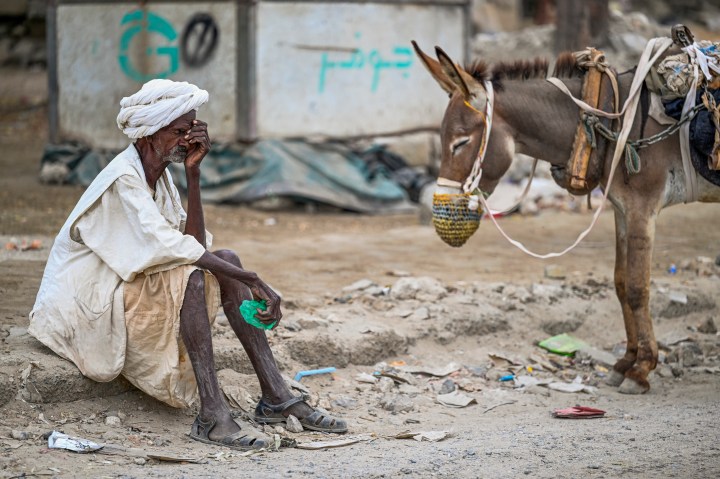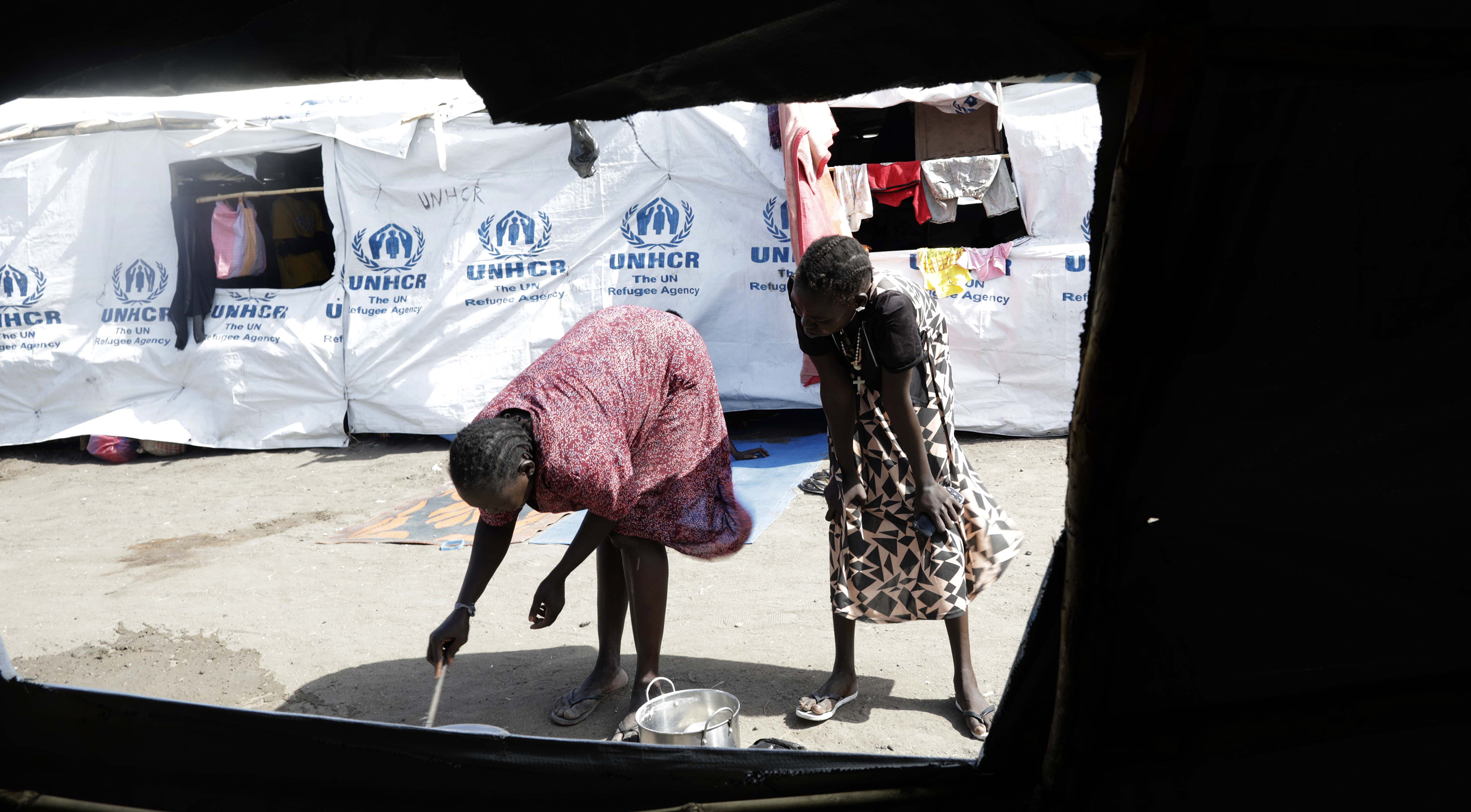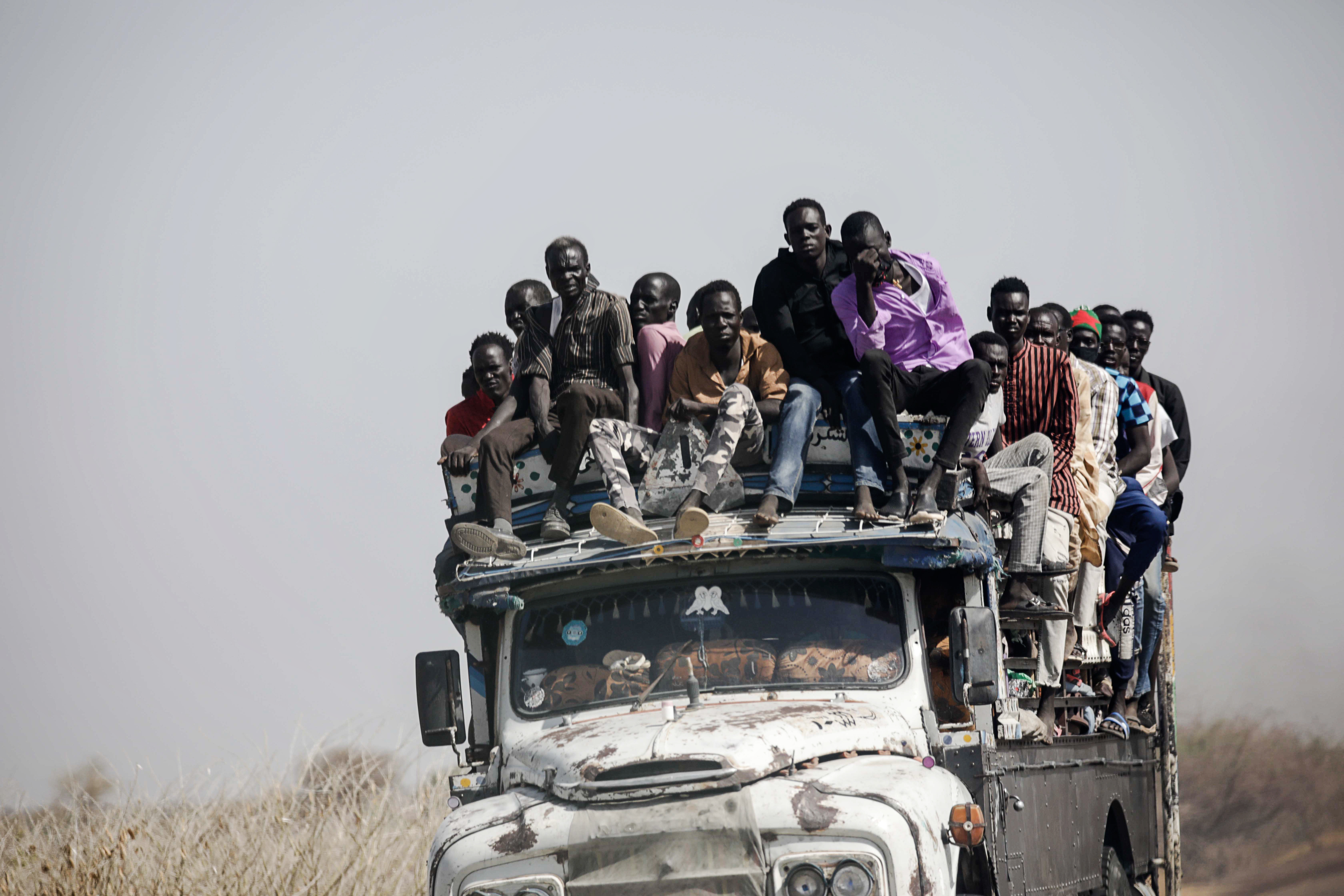WAR AND FAMINE
Famine looms in Sudan one year into its devastating civil war

International and Sudanese humanitarian organisations are calling for global leaders attending an upcoming humanitarian conference for Sudan in France to ‘turn the tide’ of the crisis by doing everything in their power to secure a sustained ceasefire in the region.
International and Sudanese humanitarian organisations have warned that Sudan is “balancing on the precipice of one of the world’s worst hunger crises” as the civil war between two rival factions of the military government – the Sudanese Armed Forces and the paramilitary Rapid Support Forces – nears the one-year mark.
The war in Sudan, which began on 15 April 2023, has had a disastrous impact on food availability across the country.
According to Anette Hoffmann, senior research fellow at the Conflict Research Unit of the Clingendael Institute, the war has obstructed domestic grain production, which normally constitutes two-thirds of the grain consumed by residents.
She referenced a report produced by the Clingendael Institute in February, titled From Catastrophe to Famine: Immediate Action Needed in Sudan to Contain Mass Starvation.

A South Sudanese returnee and her daughter prepare a meal as they stay at the transit area set up by the UNHCR in the Upper Nile State town of Renk, South Sudan, on 15 May 2023. (Photo: EPA-EFE / Amel Pain)
“The ongoing fighting prevents farmers in the main producing areas of Darfur, Kordofan and Jazeera from cultivating or harvesting, and as a result… the cereal harvest for the last season was 40% below average countrywide.
“We also find that both armies deliberately destroy and loot food infrastructure and prevent people from farming,” she said.
Read more in Daily Maverick: Activists decry COP28 silence over atrocities in Sudan war
Hoffmann spoke at a joint press briefing on the crisis in Sudan on Tuesday, 9 April. She was joined by representatives of several humanitarian organisations, including the International Rescue Committee, CARE International, the Sudanese NGO Zenab for Women in Development and Concern Worldwide.
“Our findings suggest that Sudan is already experiencing famine-like conditions in parts of the country, particularly in RSF-controlled territories, and that [the chance of] Sudan’s trajectory to a countrywide famine is very high.
“Evidence also suggests that both armies use starvation as a weapon of war,” said Hoffman.
Data collected by the Clingendael Institute indicate there is a growing likelihood that more than 40% of the population, about 18 million people, could be in Phase Five of the Integrated Food Security Phase Classification – the worst hunger level – from May to September. This would also constitute a countrywide famine.
Read more in Daily Maverick: Sudan is being destroyed while the world focuses on Gaza and Ukraine
“We can use words like ‘famine-like’ conditions, but to be brutally frank, this does mean that children are already dying,” said Dominic MacSorley, the humanitarian ambassador for Concern Worldwide.
“The situation in Darfur and Kordofan states where Concern is working is particularly worrying. Our teams there are reporting a rapid deterioration in the condition of children presenting at the various health facilities.
“Food production… has been devastated. Supplies of key staples, sorghum and millet, have dropped by up to 50% from the previous year, and in the markets of Kadugli in South Kordofan, the price of wheat is up 118%.
“So, simply put, people can no longer afford to eat. Families are down to one meal a day and women are eating least and last.”

Sudanese refugees and South Sudanese returnees travel atop a truck taking them to the Upper Nile State town of Renk, South Sudan, 12 May 2023. (Photo: EPA-EFE / Amel Pain)
MacSorley said health workers were being left without the equipment and supplies they needed to treat patients, including malnourished children.
“There is nothing more devastating for professional health workers than to be surrounded by empty shelves, with nothing to treat sick and starving children on their doorstep. But the message from the health workers to me was very clear. Their years of training were still intact…
“Conflict had disrupted but not destroyed local capacity. And these women were demanding to be supported,” he continued.
“The thin line between survival and starvation is often actually held through the courage and commitment of women such as these on the frontlines of conflict and they must be supported to every extent that we can.”
Call to action
On 15 April, an international humanitarian conference for Sudan and its neighbours will take place in Paris, France. The conference needs to be a “turning point” in the global response to the Sudan war, according to Sofia Sprechmann Sineiro, secretary-general of CARE International.
“It is heartening to see governments recognising the need for action, as well as the [UN] Security Council calling for an immediate cessation of hostilities, which the parties to this conflict have ignored so far.
“We need global leaders in Paris to take this opportunity to come up with immediate, concrete solutions to the human tragedy that continues to unfold and, of course, is spilling over across the region,” she said.
“World leaders need to stand by the very courageous, very resilient, determined people of Sudan and do everything in their power to secure a sustained ceasefire.”
Sineiro said local responders were critical to the humanitarian response to the crisis in the region, emphasising that more quality funding needed to reach these organisations, including those that were women-led and focused on women’s rights.
Fatima Ahmed, director of Zenab for Women in Development, pointed out that as local responders, members of her organisation knew the needs of residents and how best to get food to those in need.
“As local NGOs, we have been receiving funds from international NGOs and this is saving lives on the ground. We should focus on supporting and empowering local responders so they can scale up what they’re doing,” she said. DM

















 Become an Insider
Become an Insider
If its not Jews, its not news